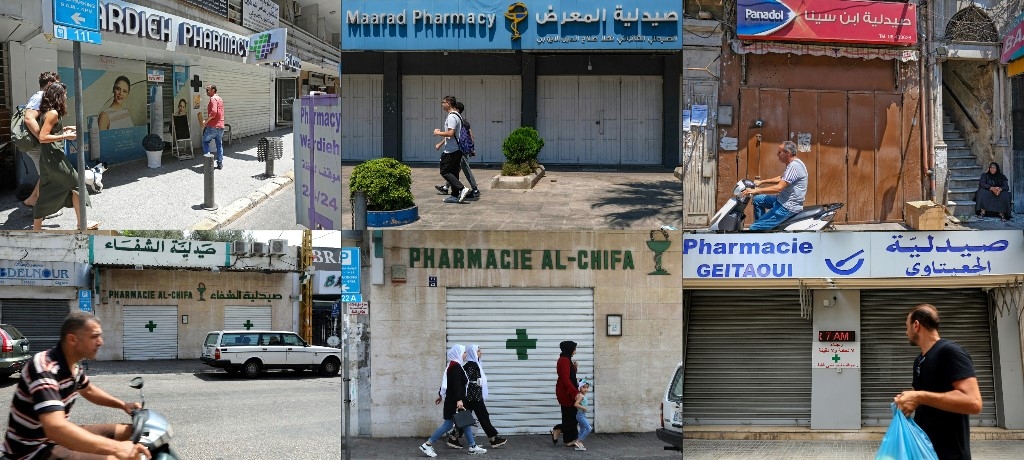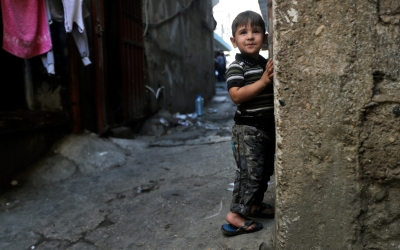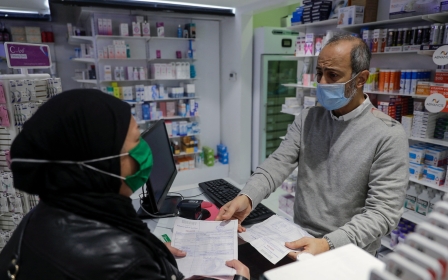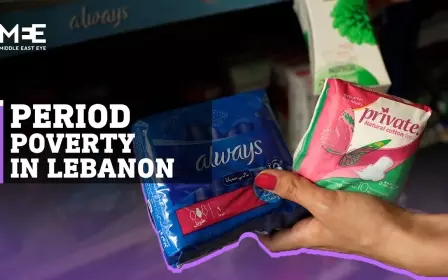Lebanon to probe sick baby's death amid severe healthcare crisis

Lebanon's health ministry said on Sunday that it would investigate the death of a baby girl whose family said she was not able to access proper hospital treatment amid the country's severe medical shortages due to one of the worst economic crises in the world.
Jouri al-Sayyid, 10 months old, died on Saturday in the village of Mazboud, southeast of Beirut, following three days of suffering from a high fever that caused an inflammation of the lungs.
Her uncle Aymen al-Sayyid told AFP that she had died because of a "lack of proper care in hospital and lack of medicines".
"Drugs weren’t available at the hospital, so her father went to the pharmacy to buy some, but it was closed," Sayyid added.
"We’re living in a country where the hospitals don’t have medicine, and the pharmacies are closed."
Many of Lebanon’s pharmacies closed their doors on Friday in a protest strike over the lack of medicines caused by the country’s staggering economic crisis.
Mazboud hospital, where the girl died, denied any wrongdoing.
It said in a statement that Jouri had received "full, appropriate treatment including all necessary medicines", and that she had died shortly after being removed from the hospital to be treated elsewhere.
Dr Kamal Mourad told AFP that she had been taken out of the facility without hospital medics being consulted.
Fury on social media
The girl’s death sparked fury on social media in Lebanon, which has spiralled into an economic meltdown including supercharged inflation and shortages of basic goods including food, fuel and essential drugs.
Health Minister Hamad Hasan vowed in a statement to open an investigation into the circumstances of the baby's death.
Translation: Our country is no longer fit for living. They are now finding different ways of killing the young and the old. They enjoy seeing the bereaved, widows, dead children and homeless families.
A widely shared video showed the father carrying the girl in his arms, wrapped in a sheet, and taking to task Lebanon's political class, which has been squarely blamed for the country's economic collapse and the exodus of capital.
'Who should I complain to? The crocodiles and sharks that left the country?'
- Jouri al-Sayyid's father
"Who should I complain to? The crocodiles and sharks that left the country?" Jouri's father angrily asks in the video.
An association of importers of medicines has warned for weeks that the country could soon exhaust its stocks of hundreds of basic medicines for chronic diseases.
Lebanon’s cash-strapped authorities have gradually cut subsidies on basic goods including medicines.
But delays in the tendering process for drug imports has caused shortages of many products, including basic painkillers and baby formula.
Many people turned Jouri al-Sayyid's name into a hashtag to share their grievances and express their dissatisfaction with the current government.
Last month, electricity shortages in the country caused disruptions at medical centres, while some hospitals have stopped carrying out elective procedures and choosing instead to perform emergency operations only due to the lack of medical supplies.
The strain on hospitals comes as the country is also grappling to deal with the Covid-19 pandemic.
Translation: Jouri al-Sayyid was killed at the hands of the criminal system that is systematically killing the children of Lebanon. Today it was Jouri, tomorrow it could be your children who are the victims of medical shortages. Revolution for medicine.
According to the United Nations Children’s Fund (Unicef), children in Lebanon are particularly at risk, as the country experiences one of the world’s worst economic crises in over 150 years.
According to research and assessments conducted by Unicef, over 30 per cent of children in Lebanon went to bed hungry in the past month, and 77 per cent of households do not have enough money to buy food.
Many children have been forced to leave school and enter into the workforce in order to help their families make a living.
Lebanon's currency has lost over 90 per cent of its value since October 2019, leaving many people unable to afford basic necessities, hitting industry and devastating all sectors of the economy.
The worsening situation has caused mounting frustration in the streets.
Middle East Eye propose une couverture et une analyse indépendantes et incomparables du Moyen-Orient, de l’Afrique du Nord et d’autres régions du monde. Pour en savoir plus sur la reprise de ce contenu et les frais qui s’appliquent, veuillez remplir ce formulaire [en anglais]. Pour en savoir plus sur MEE, cliquez ici [en anglais].





